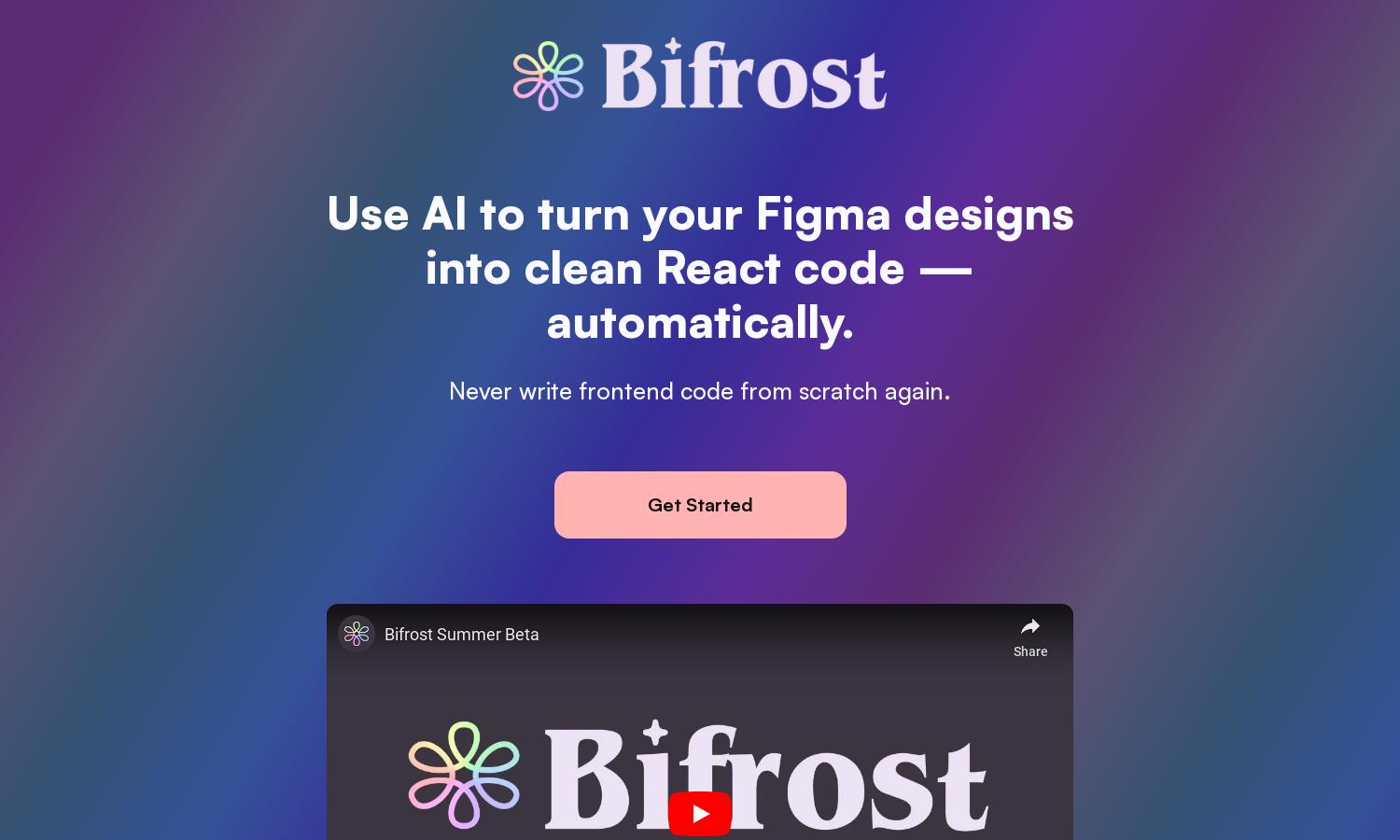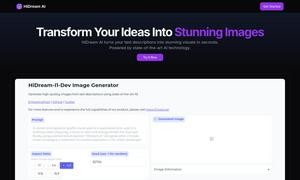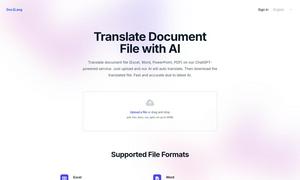Bifrost

About Bifrost
Bifrost is designed for developers and designers looking to streamline frontend development. By converting Figma designs into clean React code, it empowers teams to efficiently implement design changes, ensuring type safety and component reusability, thereby solving design-to-code challenges that often hinder project workflows.
Bifrost offers flexible pricing plans that cater to various user needs. Each subscription tier provides access to powerful features, such as Figma integration and AI-driven component generation. Upgrading ensures users receive regular updates and premium support, enhancing their design-to-code experience and workflow efficiency.
Bifrost features a user-friendly interface that allows seamless navigation through design elements and coding options. Its intuitive layout enhances the browsing experience, while unique tools like one-click Figma integration streamline updates, making it easy for users to access and manage their design-to-code projects effectively.
How Bifrost works
To use Bifrost, users begin by signing up and connecting their Figma account. After selecting or uploading their designs, Bifrost's AI analyzes the elements and generates clean React code. Users can easily manage design changes, iterating on components and screens effortlessly while leveraging the platform's intuitive features for maximum efficiency.
Key Features for Bifrost
AI-Driven Code Conversion
Bifrost's AI-driven code conversion feature allows users to transform Figma designs into clean React code seamlessly. This unique capability significantly reduces engineering time, empowering designers to make updates without coding fears, ensuring efficient collaboration between design and development teams.
Seamless Design Updates
Bifrost's seamless design update feature enables users to effortlessly pull changes from Figma into existing components. This functionality ensures that design iterations are easily integrated, allowing teams to maintain accuracy and consistency in their projects while enhancing overall productivity and workflow.
Component Reusability
Bifrost emphasizes component reusability, allowing developers to leverage previously generated components while creating new designs. This unique feature not only saves time but also maintains consistency across projects, ensuring that teams can scale their development efforts efficiently without starting from scratch.








